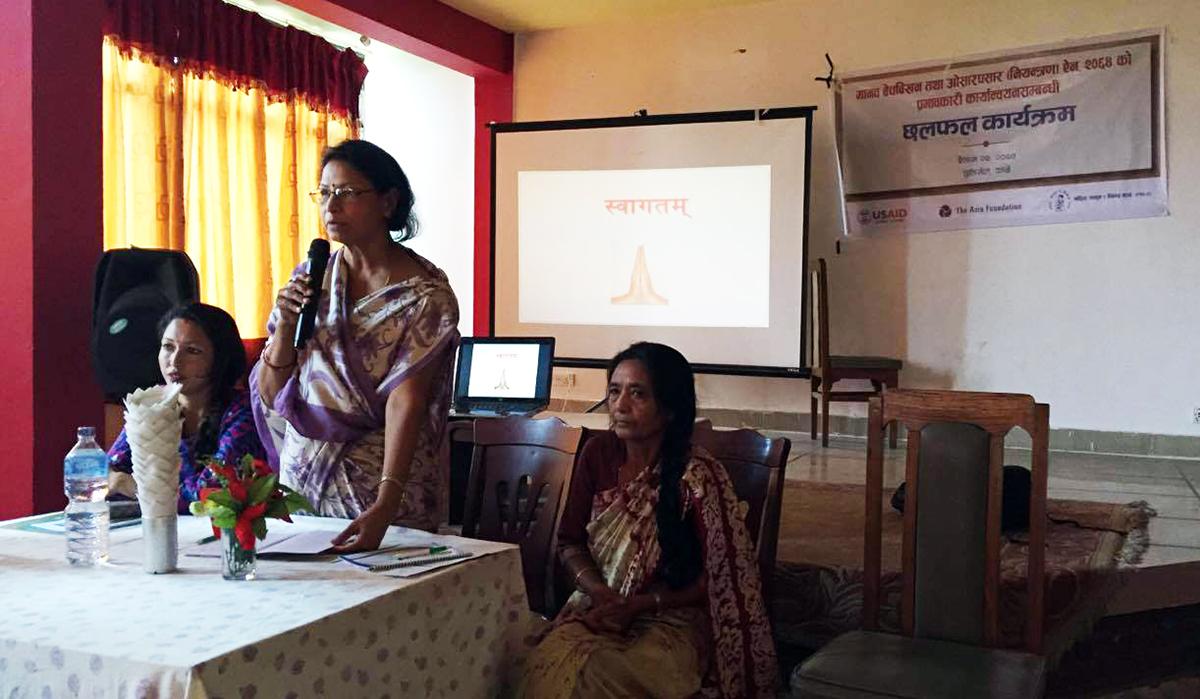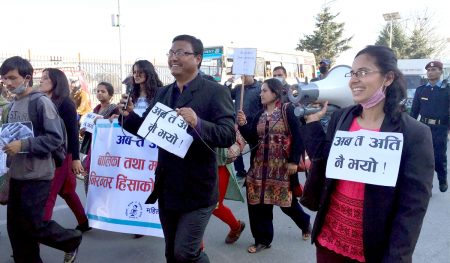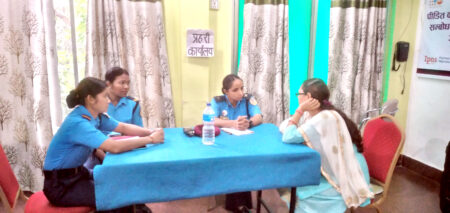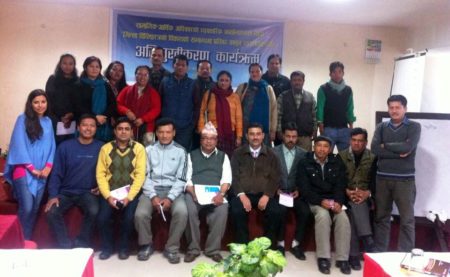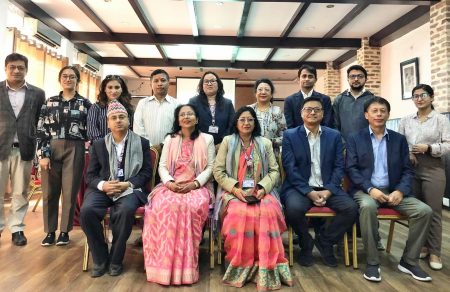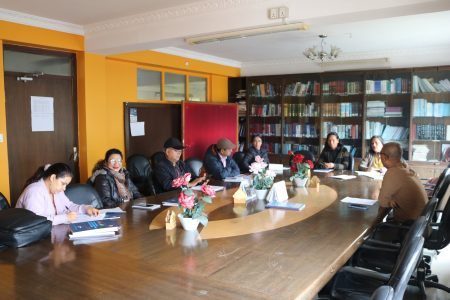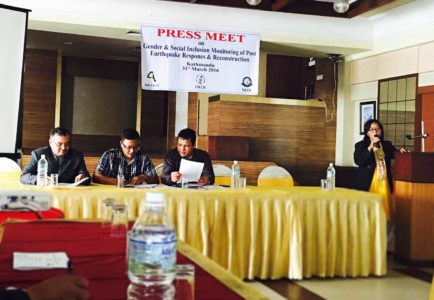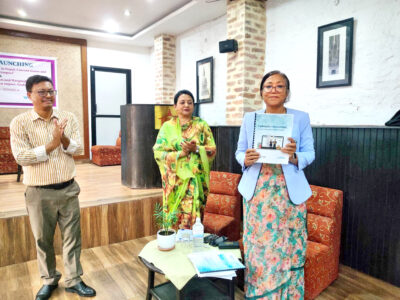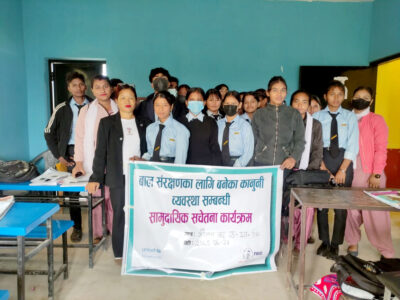Human Trafficking is a heinous crime which erodes humanity and dignity of human civilization. Trafficking means transportation of people from their origin place to different destination for different purposes like prostitution, domestic servants, labors, sex slave, etc and for many other purposes. It is prohibited by every state, society and country. However, human trafficking has been a booming criminal business. People involved in human trafficking yield billions of amounts from it. It is a serious kind of organized crime which involves people in every level including lords, henchmen and runners. Therefore, there is a big racket of human trafficking criminals which should be identified and booked for their criminal activities.
Trafficking of women and children has been a serious problem in Nepal. Mostly, they are trafficked to our neighboring country India. However, nowadays, there are various destination countries of human trafficking in Middle East as well. There are various causes of human trafficking. They are:
- Poverty
- Gender Discrimination
- Lack of Education
- Lack of Public Awareness
- Attraction to Foreign Employment
- Feminization of Poverty
There are various national and international laws in practice to combat human trafficking and transportation. They are as follows:
National Laws
- Constitution of Nepal 2072, Article 29(3)
- Human Trafficking and Transportation (Control) Act, 2064
- Muluki Ain, Chapter on Trafficking
International Laws
- UN Convention on Transnational Organized Crime, 2000
- Slavery Convention, 1926
- SAARC Convention on Preventing and Combating Trafficking of Women and Children for Prostitution
One of the Landmark Cases of Human Trafficking
- Meera Dhungana Vs. Prime Minister and Office of Council of Ministers, 2068 B.S., Writ No. 2068-ws-0046
Petitioners in the case demanded that the provision in the Human Trafficking and Transportation Act to imprison the person/witness who does not cooperate in the court procedure or gives unfavorable statement in the court is not appropriate, is discriminatory and is against the Interim Constitution and therefore should be declared void. Petitioners also demanded appropriate orders in regard to witness protection.
Court Verdict:
- Ordered to review Section 15 (6) of Human Trafficking and Transportation Act and to make legal provisions to punish those who intentionally file wrong case or change statement to assault others.
- Victim to be compulsorily informed by concerned Government Attorney Office and concerned police office regarding the charge sheet, prosecution, investigation of the case by providing duplicate copy of the charge sheet.
- A separate Compensation Fund to be established and to appropriate necessary amount in the budget of fiscal year 2071/72. Witness to be provided with the amount from concerned police office.
- To provide and cause to provide security to the complainant in case if demanded by the person from the concerned office.
From its inception, the Forum for Women, Law and Development (FWLD) has been working in the field of human rights to ensure justice of human trafficking. In doing so, FWLD has been engaged in public awareness, legal advocacy, to update trafficking laws for their effective implementation, and rights-based interventions to bring positive change. It has also worked in collaboration with other organizations to strengthen advocacy on this issue.
With the support of USAID and The Asia Foundation, FWLD has been implementing the Combating Trafficking in Persons (CTIP) program. Under this program, FWLD has been conducting public awareness campaigns, law enforcement–related discussion programs, and providing legal aid and advocacy for necessary legal reforms.
Currently, the Human Trafficking and Transportation (Control) Act, 2064 is in force in Nepal. A Bill to Amend the Human Trafficking and Transportation (Control) Act, 20064 was tabled in Parliament. However, the Act and the bill prepared for its amendment do not clearly include sexual exploitation, slavery and bondage within the definition of exploitation. The formation of provincial and local anti-trafficking committees is left as discretionary, which has limited their effectiveness. Because of these gaps, many survivors remain excluded from protection and services. Local governments still lack the legal basis to provide shelter, treatment, compensation, and rehabilitation services. Now that Nepal has ratified the Palermo Protocol, there is a need for legal arrangements in accordance with its provisions.
Even after 10 years of federalism, only Lumbini Province has enacted an anti-trafficking law, and out of 753 local governments, only eight have passed laws related to rehabilitation centers and survivor support funds. This local-level initiative was made possible with FWLD’s support. As of now, eight municipalities have adopted Local Anti-Trafficking Acts, which is a significant step toward strengthening local response.
Therefore, FWLD continues its advocacy to close these legal gaps, ensure that anti-trafficking laws truly protect all victims, and to make Nepal’s fight against human trafficking stronger and more effective.
